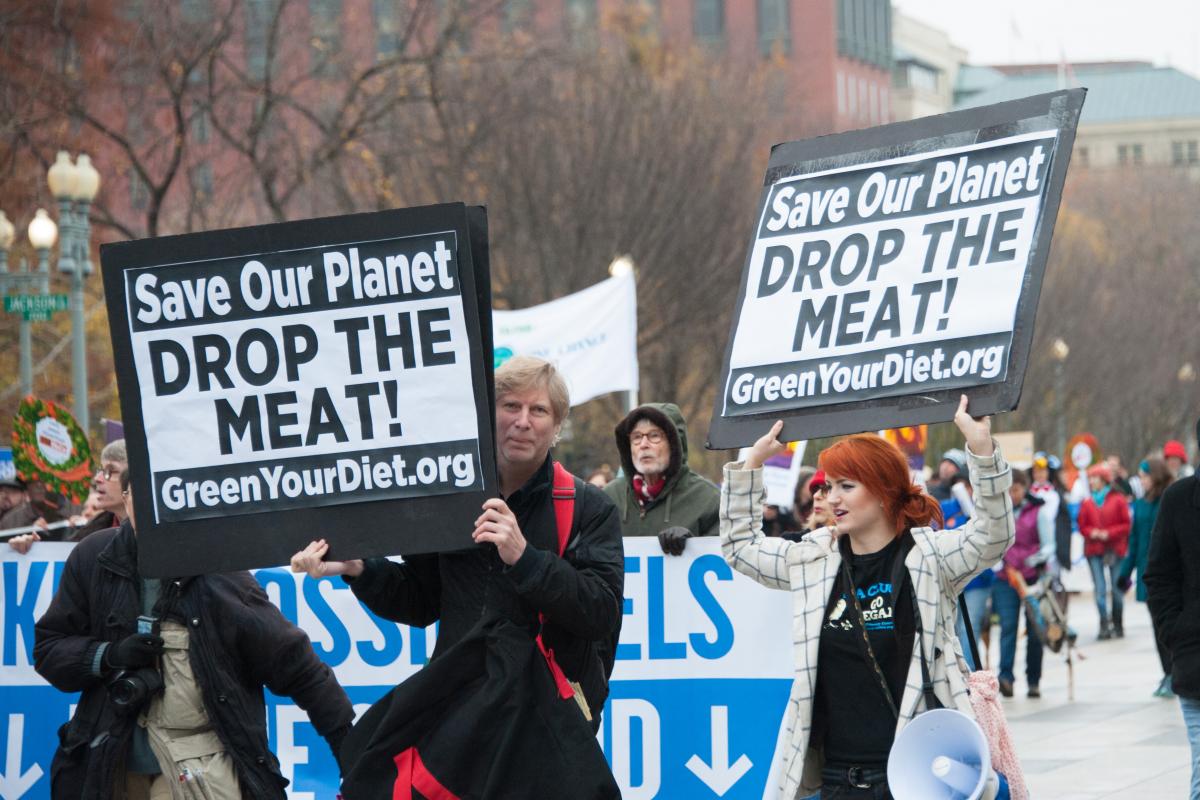Veganism is essentially the belief that it's wrong to exploit animals for human gain. As a result, vegans boycott products containing animal-derived ingredients, along with products tested on animals and activities which treat animals as entertainment.
Given this definition, it seems clear that veganism is an animal rights movement. But in recent years, the environmental impact of rearing animals for food has been widely acknowledged. For this reason, many people now say they have gone vegan for environmental reasons.
Some argue that this isn’t true veganism, since veganism is inherently about animal rights. But those who subscribe to this point of view are overlooking the harm done to animals by environmental destruction. When animal agriculture destroys the habitats of wild animals, they suffer and die in their droves. From this perspective, environmentalism is a logical extension of veganism.
This illustrates an important point - many movements and ideologies intersect with and overlap each other. Veganism is no exception, and it intersects with a number of other movements. Here are some examples.
Zero-waste
The zero-waste movement centres around the idea that we should strive to create as little waste as we can, especially when it comes to non-biodegradable waste like plastic packaging. This means moving away from disposables, especially single-use items.
It's no secret that plastic is an environmental disaster. But where does this fit in with veganism?
When we consider the impact our waste has on animals, the answer is obvious. Marine life is increasingly under threat from plastic pollution - animals may become entangled in it or ingest it, for example. Of particular concern are microplastics. These are tiny plastic fragments which fish and birds may mistakenly eat, lured by their bright colours. Microplastics can then cause further harm as they move up the food chain. Birds such as seagulls have been found dead with their bodies full of plastic, and one sea turtle famously had to have a drinking straw removed from its nose.
With this in mind, it's unsurprising that many vegans try to limit their production of waste as much as possible.

To learn about the environmental benefits of going vegan, take a look at the Plate Up for the Planet campaign.
Minimalism
Minimalism is not, as some believe, about owning as little as possible. Rather, it is about owning only what is useful or what brings us joy. If something doesn't fall into either of those categories, then why keep it?
Minimalists adopt their stance for a variety of reasons. For example, many find that having less stuff reduces their stress levels and makes their space less cluttered. But environmentalism is often a motive too. Minimalists recognise that buying unnecessary stuff uses up valuable resources and generates needless waste. This again ties into the habitat destruction and pollution threatening many species. Many minimalists become vegan because they are aware of the environmental impact of animal agriculture. But it’s not just non-human animals who are affected.
Human rights
The fact that humans are animals too is often overlooked, but if we’re serious about veganism then we must avoid supporting human exploitation wherever possible. That means buying ethically, and also buying less. The consequences of animal exploitation and consumerism affect people too, especially those who are poor or disadvantaged. Issues like factory farm pollution harm the environment, animals and human beings. We must extend our compassion to all creatures affected.
This applies to social justice issues too. For example, many feminists argue that since dairy and egg production involve the exploitation of the female reproductive system, they are feminist issues. This is another example of the way veganism ties into human rights - the mindset that leads some people to dominate others is the same one which makes us think it's acceptable to dominate animals.

Conclusion
We see the issues facing our world as separate, but in reality they are intertwined. If we take veganism to its logical conclusion, we must also care for the environment. That in turn means producing less waste and becoming more minimalist. It also means caring about other people. The upside is that taking steps to address one issue often helps to address others. Our choices are far-reaching; that should empower us to make the best ones we can, for the benefit of the Earth and every creature on it.
by Bethany Chester
The views expressed by our bloggers are not necessarily the views of The Vegan Society.


Comments
Population is an issue for vegans too
Racism